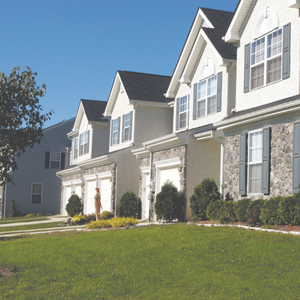How is purchasing a condominium different from purchasing a townhome or a single family home? When you purchase a townhome or single family home you are buying the land along with the improvements on the land. When you buy a condo, you are just buying the four walls and everything inside of the unit. A condo is usually within another structure, and you only own your unit – not the land it is on. You might have access to a common area, a pool or a parking garage, but that access comes with the expense of higher dues to your condo association.
 Whether a property is in a homeowner’s association or a condominium association, the seller is required to deliver the association documents to the buyer. If purchasing a condo, a Virginia buyer has a three-day right to cancel the contract after the documents have been delivered and reviewed. The window for review can be extended by agreement of all parties for up to 7 days.
Whether a property is in a homeowner’s association or a condominium association, the seller is required to deliver the association documents to the buyer. If purchasing a condo, a Virginia buyer has a three-day right to cancel the contract after the documents have been delivered and reviewed. The window for review can be extended by agreement of all parties for up to 7 days.
When a condo document packet is delivered to the buyer, it’s thicker than your average homeowners association packet and has important information to understand and review. While a homeowners association can regulate where fences and lights should be placed, a condo association can also regulate what can be done INSIDE a condominium. For example, a certain percentage of flooring may need to be carpeted versus all hardwood floors, or the size of your pet can be regulated.
You will want to review these documents carefully. The cost of your dues should be included, as well as what you get for those dues. You want to make sure that you can abide by the rules of the association. Once you buy the property, you are obligated to meet the requirements.
Your packet should also include financial information for the condo association. Why is that important? Financial stability is extremely important when it comes to maintaining the property and the building where your condo is located. Reviewing that financial paperwork will give you an idea of how much money the association has to work with concerning repairs and upgrades when needed. This can be particularly important with an older condominium building where repairs may be needed soon.
Let’s pause here and talk about dues. Condo dues will be higher than homeowner dues because they cover repairs and maintenance of the condo building. You may get the condo for a lower purchase price in comparison to a townhome or a single family home, but that savings might be offset by the cost of the dues.
When you are a condo owner, you have ‘walls-in’ ownership. Essentially, you own from halfway into the wall itself to the interior of your space. You have no claim to the roof of the building or the outer walls. The association should be using dues to cover those costs so it is important to note whether these items are in good shape or in need of repair. It could mean an increase in your dues.
 Condominiums still need homeowner’s insurance, but the cost should be cheaper and similar to a renter’s policy because your insurance will not be used to rebuild the building. Your insurance only covers everything inside the walls of your unit. You would be responsible for anything from halfway through your ‘walls-in’ as mentioned above, and your condo association will have a master insurance policy that covers everything else. If you are getting a loan, your lender will not only want proof of your insurance, but also evidence of the master policy that your association has.
Condominiums still need homeowner’s insurance, but the cost should be cheaper and similar to a renter’s policy because your insurance will not be used to rebuild the building. Your insurance only covers everything inside the walls of your unit. You would be responsible for anything from halfway through your ‘walls-in’ as mentioned above, and your condo association will have a master insurance policy that covers everything else. If you are getting a loan, your lender will not only want proof of your insurance, but also evidence of the master policy that your association has.
Is a survey involved? The answer is no. You don’t own any land and have no ownership interest in the land where your condo sits. You only own interest in the improvement on top of the land so there is nothing to be surveyed.
Whether you decide on a house or a condo, the professionals at Highland Title + Escrow can help you when it comes time to close on the place of your dreams. Call us at (703) 723-3300 to start your order today!